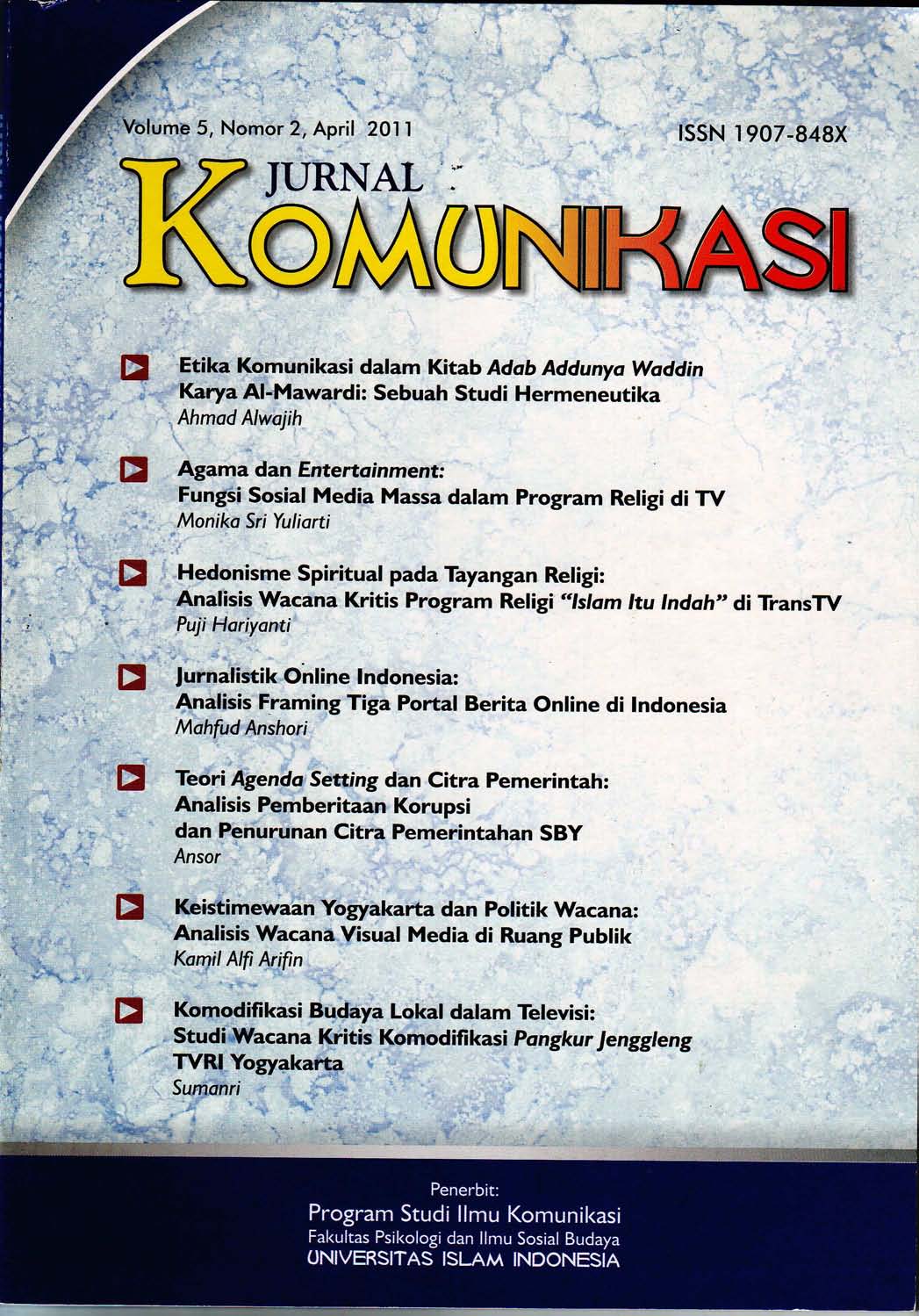Main Article Content
Abstract
The television through religious program wanted to show that religion doctrine could be packed as entertaining program. Then, it came to us as an easy, simple, and brief lesson. But in practice, it made Moslems became individualistic. They concerned only in individual piety, without thinking and trying more to solve complex social problem. This study focused in how the textual tendency of spiritual hedonism discourse is was shown in the text of the religious program “Islam Itu Indah” in TransTV. Results showed that the passion of religiousness in a modern people that practice hedonism and materialism as a life style was increasing. Besides, commercialization of religion then came in the form of spiritual hedonism—a spiritual practice that aimed to be enjoyed and not to be taken seriously. Religion was shown in a stage of popular culture only just as the symbolic of piety.
Article Details
Authors who publish with this journal agree to the following terms:
- Authors retain copyright and grant the journal right of first publication with the work simultaneously licensed under a Creative Commons Attribution License that allows others to share the work with an acknowledgement of the work's authorship and initial publication in this journal.
- Authors are able to enter into separate, additional contractual arrangements for the non-exclusive distribution of the journal's published version of the work (e.g., post it to an institutional repository or publish it in a book), with an acknowledgement of its initial publication in this journal.
- Authors are permitted and encouraged to post their work online (e.g., in institutional repositories or on their website) prior to and during the submission process, as it can lead to productive exchanges, as well as earlier and greater citation of published work (See The Effect of Open Access).
